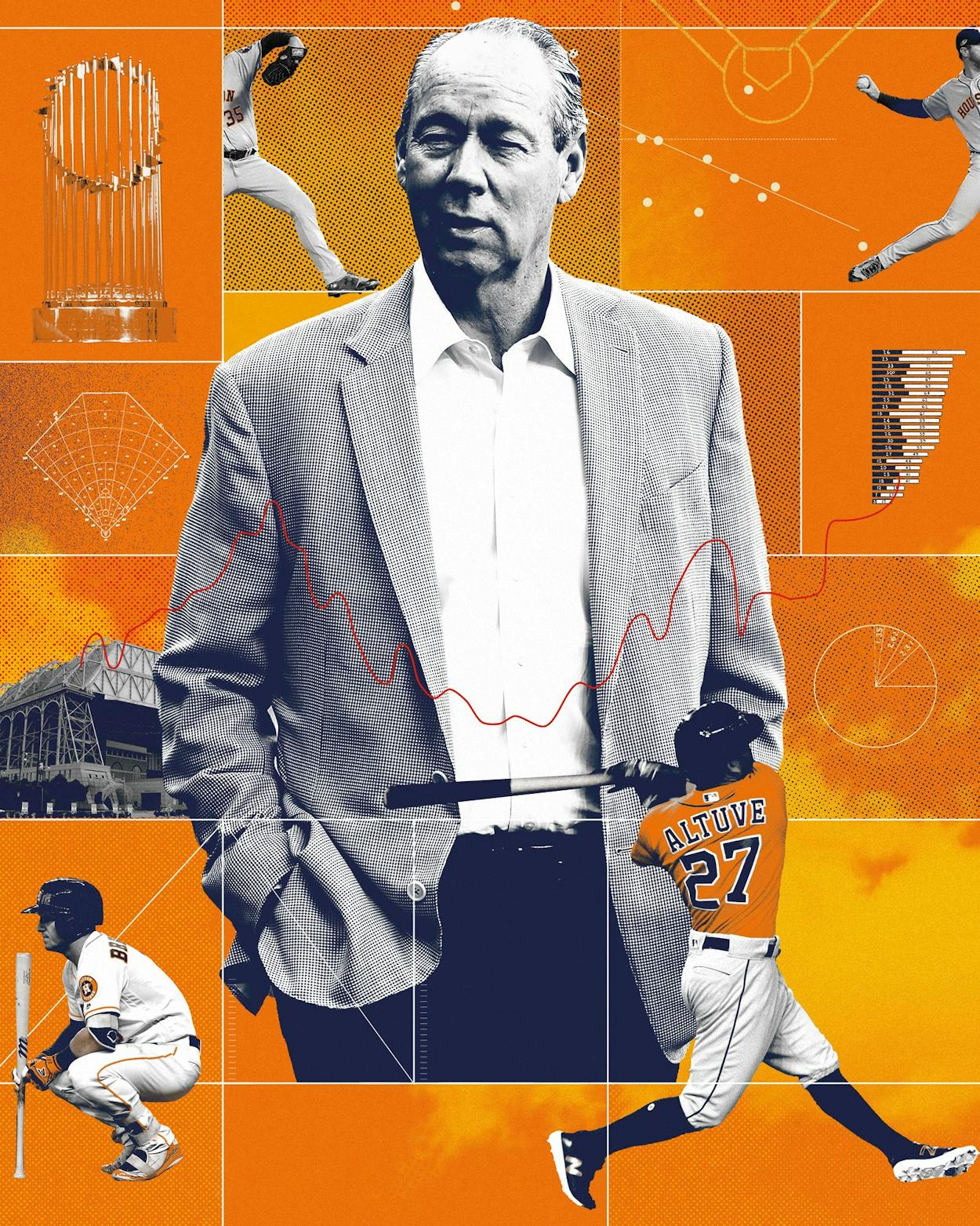While the Houston Astros didn’t ascend all the way to baseball’s apex this year, 2018 still offered plenty of great memories, capped by a second consecutive American League West title and an appearance in the AL Championship Series to go along with a franchise-record 103 regular season wins. Those who kvetch that these Astros failed to repeat as world champions would do well to wind back the clock seven and a half years and remember how things looked before businessman Jim Crane bought the team.
It’s almost impossible to concoct even a theoretical professional sports franchise that was in worse shape than the 2011 Astros. With their combination of mediocre young prospects and enormously overpaid veterans, those Astros compiled what was then the most abysmal record in franchise history: 56–106, 40 games out of first in the National League Central Division and a full 15 games behind the two teams that tied for the second-worst records in the National League.
Had there been any hope on even the most distant horizon—say, a glut of phenomenal prospects tearing up the low minors—Astros fans could have consoled themselves with hoary “Always darkest before the dawn”–style clichés. But after years of neglect, the Astros farm system Crane inherited was as bleak and barren as Dust Bowl Oklahoma.
Crane’s task—to turn the team around—was as daunting as any in American sports. In the NBA, all it takes is one LeBron James to transform a cellar dweller into a conference championship contender. Two or three great drafts in a row can remake a football franchise. But baseball? That takes patience, time, fastidious attention to detail, and a willingness to delegate.
Crane realized that as a mid-market team, the Astros would have to spend smarter than those atop MLB’s pecking order, so he slashed the big league club’s payroll to the bone and reprioritized scouting and player development. He cleaned out the front office and brought in a cadre of statisticians led by general manager Jeff Luhnow, who brought with him years of experience from the St. Louis Cardinals, easily MLB’s most consistently successful small-market club.
Measured in terms of wins and losses, Crane’s first two years of ownership were horrid. The 2012 Astros broke the 2011 Astros record for the worst season in history, and with 51 wins and 111 losses, the 2013 Astros were even more pitiful. Nielsen ratings found no evidence that a single television viewer watched the Astros lose to the Cleveland Indians in one late-season 2013 game.
While some obsessive Astros fans—the sort who call in to radio shows after they’ve had a few and watched yet another loss—were demanding that Crane fire Luhnow and sell the team, others picked up on the method to this badness. Luhnow had by then restocked the minor league cupboard with promising prospects while holding onto José Altuve and Dallas Keuchel—two of the precious few assets McLane had left behind. And Crane’s patience was about to be rewarded.
Why We Love José Altuve
There’s no good reason why a small man can’t be a baseball star. By rule, short guys have a tighter strike zone. Great sprinters come in all shapes and sizes, as do strong men. Baseball, specifically, has many a sub-six-foot star. But strangely, few are as short as the Astros’ hard-hitting second baseman, José Altuve. For a city that perceives itself as an underdog—lacking the name recognition of Dallas, or the hip cachet of Austin—the 5’6” Venezuelan is the perfect hero.
In one of the hottest takes in the magazine’s long history of bold claims, Sports Illustrated, in June of 2014, predicted that the Astros would win the World Series in 2017. SI scribe Ben Reiter was mocked at the time, with even the Houston Chronicle calling it “more of an attention-grabbing, perhaps even tongue-in-cheek projection than a prediction.”
The Astros crawled out of the American League cellar in 2014 and then, under the guidance of new manager A. J. Hinch, shocked everyone in 2015 by taking the eventual world champion Kansas City Royals to the wire in the AL Division Series in 2015. And then, last year, in fulfillment of SI’s prophecy, the Astros won the first World Series in their 55-year history.
It all seems so easy in retrospect. Think long-term. Hire the best people. And—take note, other members of professional sports’ Billionaire Boys Club (I’m looking at you, Mr. Rhymes With “Terry Tones”)—get out of their way.
There’s every reason to believe this philosophy will continue to pay off for Houston fans. Even if this year’s team failed in its bid to repeat as world champs, the self-perpetuating machine Jim Crane has built is poised to contend again next year. In an era when many mid-market teams are forced to mortgage their futures to pay for short-term success, Crane’s Astros have the luxury of restocking their personnel from within. Not only are most of the core stars on the big league roster under contract for 2019, but the Astros farm system is highly regarded. Of such raw materials sports dynasties are made, and hopes will be high when the team’s pitchers and catchers report to West Palm Beach in February for spring training.
This article originally appeared in the December 2018 issue of Texas Monthly with the headline “Assembling a World Championship Team That’s Built to Last.” Subscribe today.
- More About:
- Sports
- Houston Astros
- Jim Crane
- Houston








